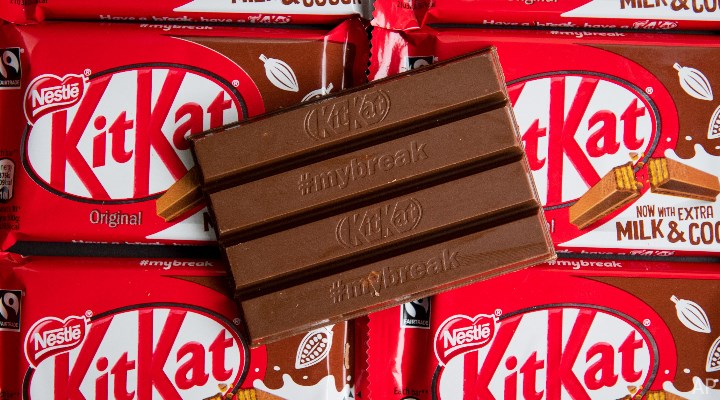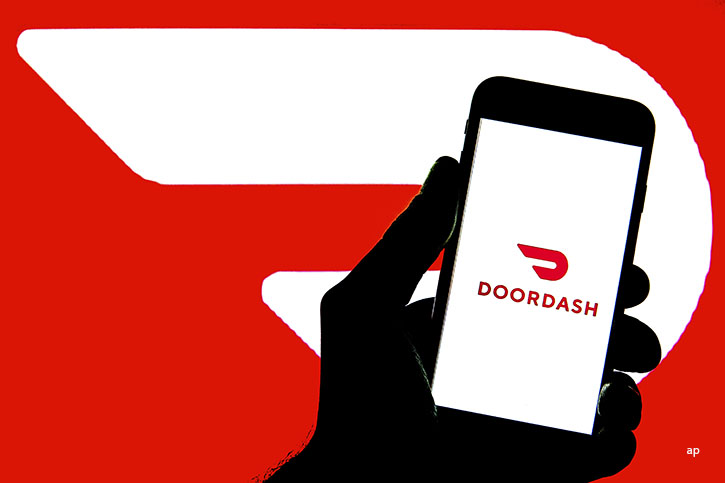
In a week that kicked off with Valentine's Day content galore, we take in the big stories.
Taking a Break Will Cost You More
A new inflation narrative has hit the headlines. This week, Nestle, the maker of KitKat and Nescafe coffee products, warned it was a “safe assumption” its prices would rise. The company’s chief executive, Mark Schneider, also said there was “no place” within the company that would be immune from inflationary pressure. For those of you taking a different kind of break, there is yet more bad news. Reckitt (RKT), the consumer goods giant behind Durex, also said this week its prices would have to rise, though it committed to at least attempting to absorb some of the cost.
UK Inflation is Heading Towards 8%
And speaking of inflation (again), clothing and footwear price hikes helped push inflation to the 5.5% mark in January, according to a release from the Office for National Statistics this week. There is no end to the pain in sight. For its part, the Bank of England reckons inflation is going to top 7% in the coming months, a level not seen since the early nineties, when John Major was prime minister, and Neil Kinnock was issuing confident statements about winning a General Election. Some things just don’t work out how you think they will.
Musk is Losing His Chill with the SEC
Tesla chief executive Elon Musk is in trouble with the world again. After the outspoken rocket magnate deleted a tweet comparing Canadian prime minister Justin Trudeau to Adolf Hitler, court filings revealed Musk is in a war of words with the US Securities & Exchange Commission. Musk, whose tweets have been known to move markets, said in the documents that he had been targeted for “unrelenting investigation” in a bid to “chill” his free speech. Whatever the validity of the claims, it seems unlikely the relationship between the billionaire and the regulator will cool any time soon.
Alibaba and Tencent Are in Trouble
Alibaba (BABA) and Tencent (0700) are the latest companies to be caught up in the ongoing war of words between the US and China. The US has added websites run by both companies to a master list of “notorious markets”, highlighting its belief that both are exposed to the trading of counterfeit goods. The list includes 42 online sites and 35 stores run by the technology ecommerce giants. At stake is the issue of copyright and intellectual property infringement, though with everything else in the US’s intray it seems doubtful the Chinese government will be panicking at the news.
The iPhone is Now Mask-Compatible
The iPhone is now mask-compatible. What do we mean by that? Well, an update to iOS means users of its facial recognition software can still log in to their phones while wearing a mask. This is a highly useful development. Well done Apple.
The Hedges Have Failed
John Rekenthaler’s column on the failure of hedges to live up to their name is well worth a read this week. In it, he asks why it is that all the traditional hedges against turbulence (gold, for instance) have failed to do their jobs. But there is an intriguing sub-narrative. The market probably priced in inflationary spikes, which may partly explain why hedges have performed unspectacularly. As ever, Rekenthaler is on sparkling form in this, the latest of his graph-laden takes on what on Earth is going on.
Take Away These Stocks?
At Morningstar we like to preach the benefits of understanding the difference between an expensive stock and an opportunity. In this piece, we highlighted quite a few European stocks that Morningstar analysts think are currently undervalued. Among them is Just Eat (JET). And speaking of food delivery stocks, Just Eat’s major US competitor caught our attention this week with better-than-expected revenue figures. Look out for more reporting on the future of food in the coming weeks.
The UK’s Crackdown on Fraud Has Begun
UK home secretary Priti Patel has been talking tough on fraud of late. Last month she approved the extradition of a British technology entrepreneur to the US, where he was wanted on fraud charges. Now, in a move arguably designed to shake the boots of Russian oligarchs, the minister is putting an immediate end to so-called “golden visas”, which have historically allowed anyone with more than £2 million to get quick access to the UK’s shores. The “Tier 1” system was introduced 13 years ago, and a review of applications granted between 2008 and 2015 will shortly be forthcoming.
Blind Trust is Bad in Love and Money
A big shoutout to Morningstar data journalist Sunniva Kolostyak, who marked Valentine’s Day this week with a topical look at Netflix hit The Tinder Swindler. In it, she argues there are plenty of love lessons from the series that are just as applicable in relationships. Given how difficult it can be to talk about money with loved ones, forewarned is definitely forearmed.
Divorces Are Expensive
Continuing our look at the darker side of February 14th, we highlighted just how messy divorces get when you are extremely rich. It turns out there is more to consider than just the legal bills. Maintenance and staffing costs for mediators, advisers, schools, nannies, and tutors all have to be divided up, and that’s before you’ve even considered what to do with the business your spouse might have a stake in. Against that backdrop, it may seem a little absurd that Jeff Bezos didn’t get a prenup.





























